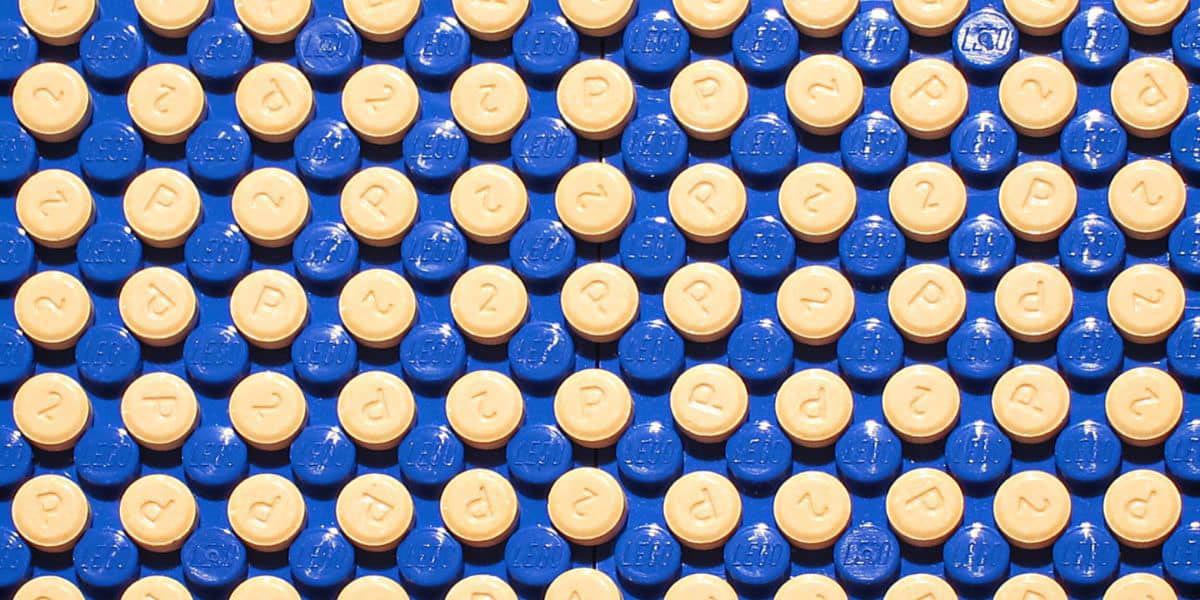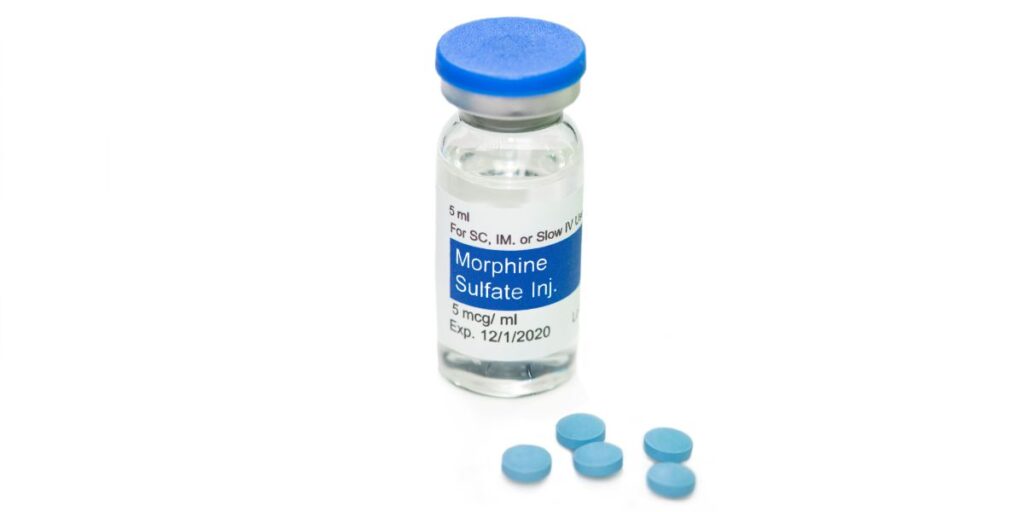Dilaudid (Hydromorphone) Addiction

Dilaudid is the brand name for hydromorphone. Dilaudid is a manufactured painkiller that works fast and helps people when weaker medicines don’t work anymore. Hydromorphone, known since the 1980s, treats severe pain. Sadly, people have misused it, and it has played a part in the United States’ problem with opioid addiction for just as long. Dilaudid is a powerful painkiller that can cause addiction, even though other painkillers are more commonly used.
The United States Drug Enforcement Administration (DEA) approximates that physicians issue around 4 million prescriptions annually for hydromorphone. This number does not account for deceitful prescriptions or unlawful ways people acquire Dilaudid.
The worry is that people addicted to opioids might start using heroin if they can’t get their medication legally. This could lead to a dangerous cycle of drug abuse and a higher chance of overdose. Understanding Dilaudid, being aware of the dangers, and seeking assistance for opioid addiction before it worsens is important.
What Is Dilaudid?
Dilaudid, also called hydromorphone, is a strong pain medicine. Doctors give Dilaudid to help people with medium to severe pain from things like surgery, ongoing pain, and cancer that hurts a lot and doesn’t get better with other pain treatments or medicines.
Dilaudid is a medicine that calms the brain. It targets specific areas to release dopamine, which creates feelings of happiness and reward. When dopamine comes out, and the medicine makes you feel calm, it helps your body not notice pain as much. This is why Dilaudid works so well for pain.
People who are constantly in pain or severely ill may require stronger pain medication such as Dilaudid. This is because they have built up a tolerance to milder pain relievers. But the stronger the medicine, the easier it is for people to misuse it or get addicted to it.
Dilaudid is available as quick-acting and slow-release pills, little cones for rectal use, and a liquid for shots. In the US, hydromorphone is a Schedule II controlled substance, regulated because of its potential for misuse.
People sometimes call Dilaudid or hydromorphone, by other names, like:
- D
- Dust
- Smack
- Dillies
- Juice
- Footballs
- Peaches
- M-80s
Dilaudid or Morphine
Some people think that all medicines doctors prescribe for pain are the same, but there’s a difference between morphine and Dilaudid.
- Origins: Morphine comes from nature and is an opioid; Dilaudid is made in a lab to act like morphine, but it’s not natural.
- Strength: Dilaudid is a lot stronger than morphine, 5 to 10 times more, because of the way it connects to brain parts that feel pain and the brain chemicals it releases.
- Onset: Dilaudid works faster than morphine because it gets to the brain quicker. This is something people who use drugs for fun like. Using drugs by snorting or shooting up makes them work even faster.
- Duration of effect: Dilaudid has a quick onset of action, but its impact is fleeting. Conversely, morphine lasts longer and retains its effectiveness over a prolonged period.
- Popularity: Individuals who abuse opioids typically favor Dilaudid over morphine because of its rapid action. Physicians tend to prescribe Dilaudid more often, resulting in increased demand and cost in the illicit market.
What’s essential to know is how much morphine and Dilaudid are alike. Both can be highly addicting and have almost the same harmful side effects and chances of taking too much. If someone overdoses on morphine or Dilaudid, Narcan can save their life.

Dilaudid Addiction
Dilaudid is a powerful manufactured painkiller, and it’s easy to get hooked on. In just two to three weeks, a person can start needing Dilaudid to feel normal.
Dilaudid not only takes away pain but also makes the brain release a chemical that makes you feel super happy, relaxed, and joyful. People who misuse Dilaudid keep trying to feel that way again.
But over time, it gets harder to feel that same joy, and the usual amount they take doesn’t work anymore; this is known as building up tolerance. When someone needs more of the drug to try to get that happy feeling again, they might take it more often or in more significant amounts or even mix it with other things to try to get the effect they want.
Once a person’s body starts depending on Dilaudid and they’ve built a tolerance, stopping all of a sudden can make you feel sick. This cycle of using the drug to feel good or to avoid feeling sick keeps going and can get worse.
Not everyone who takes Dilaudid will get addicted. People who use it just like their doctor says for a short time to help with pain aren’t likely to get hooked. But, some things can make it more possible for someone to get an opioid use disorder.
Things that might make someone more likely to get addicted to Dilaudid are:
- Risk factors for developing an addiction to Dilaudid include:
- Personal or family history of substance abuse
- Personal or family history of mental illness
- Early exposure to drugs and alcohol
- Easy access to Dilaudid
- Past trauma
- Poor impulse control
- History of withdrawal experiences or overdoses
Signs of Dilaudid addiction encompass a range of behaviors and physical changes indicative of a growing dependence on this powerful opioid pain medication. These signs include:
- Running out of the prescription early: This suggests misuse or overuse of the medication beyond what is medically recommended.
- Visiting multiple doctors to get Dilaudid prescriptions: Known as “doctor shopping,” this behavior is a method to obtain more medication than one doctor would prescribe.
- Taking Dilaudid from friends and family members: Using someone else’s prescription medication is illegal and indicates a reliance on the drug.
- Buying Dilaudid off the streets: Seeking the drug outside of legal medical channels indicates a high level of addiction.
- Powerful yearning for Dilaudid: A potent need or compulsion to consume the drug is a characteristic sign of addiction.
- Spending the majority of time getting, using, or recovering from using Dilaudid: When the pursuit and use of the drug dominates one’s life, it’s a sign of severe addiction.
- Lying about and hiding Dilaudid use: Deceptive behaviors to conceal drug use often occur as the individual tries to avoid judgment or intervention.
- Taking Dilaudid in ways other than prescribed, like snorting or injecting it: Altering the method of drug intake to achieve a faster, more intense effect is a misuse of the medication.
- Mixing Dilaudid with other drugs like muscle relaxants, benzodiazepines, or alcohol to increase the effects: Combining substances can be dangerous and suggests an attempt to enhance the euphoric effects of the drug.
- Becoming withdrawn and neglecting personal and professional obligations: Addiction can lead to isolation and a decrease in performance or engagement in previously essential areas of life.
- Physical changes like weight loss, yellow skin, and neglecting personal hygiene: These can indicate health issues related to drug use and a lack of self-care.
- Inability to stop taking Dilaudid despite negative consequences: Continuing drug use despite clear harm to oneself or one’s life is a sign of addiction.
- Putting oneself in dangerous situations to get and use Dilaudid: Engaging in risky behaviors to obtain the drug shows a disregard for personal safety in favor of satisfying drug cravings.
- Experiencing withdrawal symptoms when Dilaudid use suddenly stops: Physical symptoms of withdrawal indicate physical dependence on the drug.
Knowing that addiction is a long-time sickness that changes the way our brain and bodywork is essential. People addicted to Dilaudid realize it’s harmful but struggle to stop without help.

Side Effects From Dilaudid
How Dilaudid affects someone can be different for each person. It depends on why they are taking it, how much they can handle, their mind and body’s health, and if they have other things in their body too. Dilaudid can produce a feeling as quickly as 30 minutes after taking a pill and even faster if you inject or sniff it.
Dilaudid can cause different side effects, including:
- Headache
- Dry mouth
- Drowsiness
- Abdominal pain
- Sweating
- Itching
- Flushed skin
- Nausea
- Vomiting
- Cold and clammy skin
- Sexual dysfunction
- Respiratory depression
- Low blood pressure
- Loss of appetite
- Slow or inconsistent heart rate
Should you sense that something isn’t right, consult your physician. Immediately inform your doctor if side effects persist for an extended period or fail to subside.
If you experience vomiting, diarrhea, restlessness, hallucinations, trouble breathing, or severe stomach cramps, seek medical care right away. These symptoms can be dangerous if left untreated.
If your stomach hurts after taking Dilaudid, it may indicate a paralytic disease affecting your digestive system. This disease can prevent your digestive system from functioning correctly. This situation can be critical and potentially fatal.
The Food and Drug Administration (FDA) says that labels on prescription medicines must have a warning part. It discusses possible bad reactions and how the drug might not mix well with other things. Ignoring warnings and mixing Dilaudid with other medications or drinking alcohol can be dangerous, especially for older people. It can lead to serious side effects, bad reactions between drugs, and the risk of overdosing.
The warnings for Dilaudid say to avoid the medication if:
- If you’ve ever had long-term lung problems or breathing problems such as shallow breathing and asthma
- If you’ve ever had a brain tumor or hurt your head
- If you have Addison’s disease
- If you’ve taken antidepressants like SSIs or MAOIs in the last 14 days
- If you’re pregnant or breastfeeding
- If you’re using or going to use benzodiazepines, muscle relaxers, other calm-down medicines, sleeping pills, or sedatives
- If you had paralytic ileus before
- If you or your family have a history of addiction
- If you have had eating disorders or problems with not gaining weight
Nobody should quit Dilaudid suddenly without talking to a doctor or pharmacist. People with opioid abuse problems, like being addicted to Dilaudid, or those who use lots of different substances at the same time might face dangerous symptoms if they stop.
Stopping suddenly can lead to withdrawal symptoms that might be as mild as a runny nose and feeling like you have the flu or as severe as feeling restless, seeing things that aren’t there, and other severe health problems. Your doctor might suggest a medical detox. In a medical detox program that doctors watch over, they will look after and treat withdrawal symptoms to make sure you’re safe. Then, they’ll help you with more treatment to deal with addiction and dependence.
Dilaudid Addiction Treatment
If you or someone you love is having a hard time with Dilaudid or hydromorphone addiction, Northridge Addiction Treatment Center can provide help.
Our inpatient treatment center provides medical detox on-site, with care and support from our medically trained team. This ensures your withdrawal is safe, goes smoothly, and feels as comfortable as possible. Having experts watch over your withdrawal helps lower the risk of facing long-lasting withdrawal symptoms and going back to old habits.
After detoxing, we’ll help you determine your specific needs and goals for comprehensive, individualized treatment. This unique treatment plan will aim for lasting success and use treatments and therapies backed by scientific evidence and research. We strive to give you healing, knowledge, skills, and healthy ways to deal with challenges in the future.
Get in touch with us now; an entire life of healing and recovery awaits you.
Find Meaningful Recovery
Our caring and compassionate specialists are eager to help you comfortably navigate this journey to recovery. Our individualized treatment plan, programs, and therapies may be a perfect match for you or your loved one. Let us assist you in living the happy life you deserve. It starts with a phone call.




